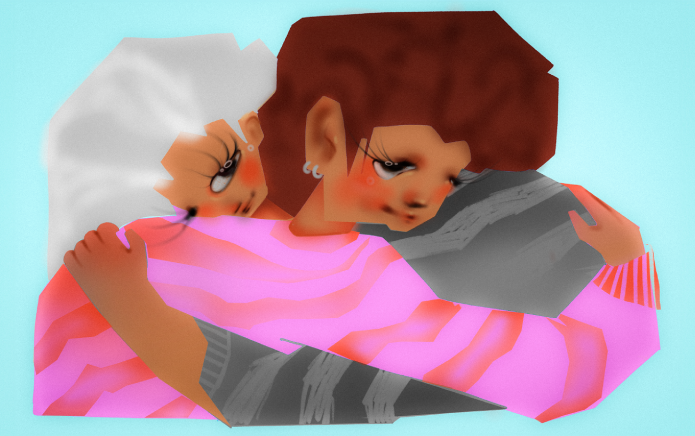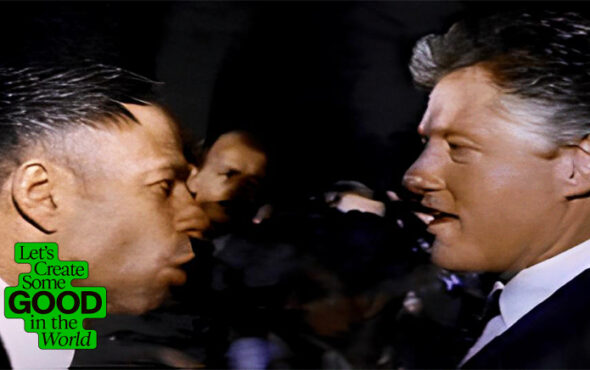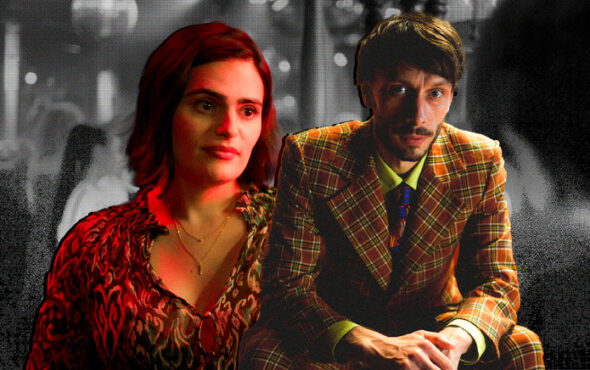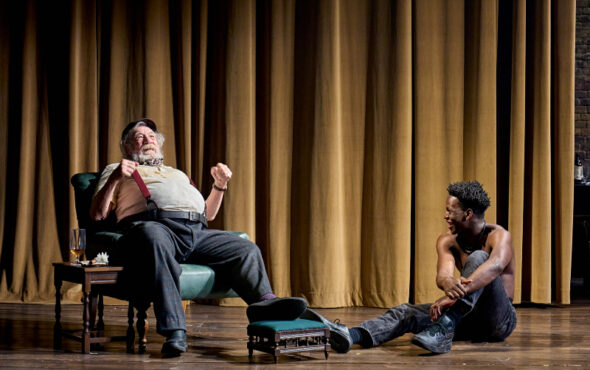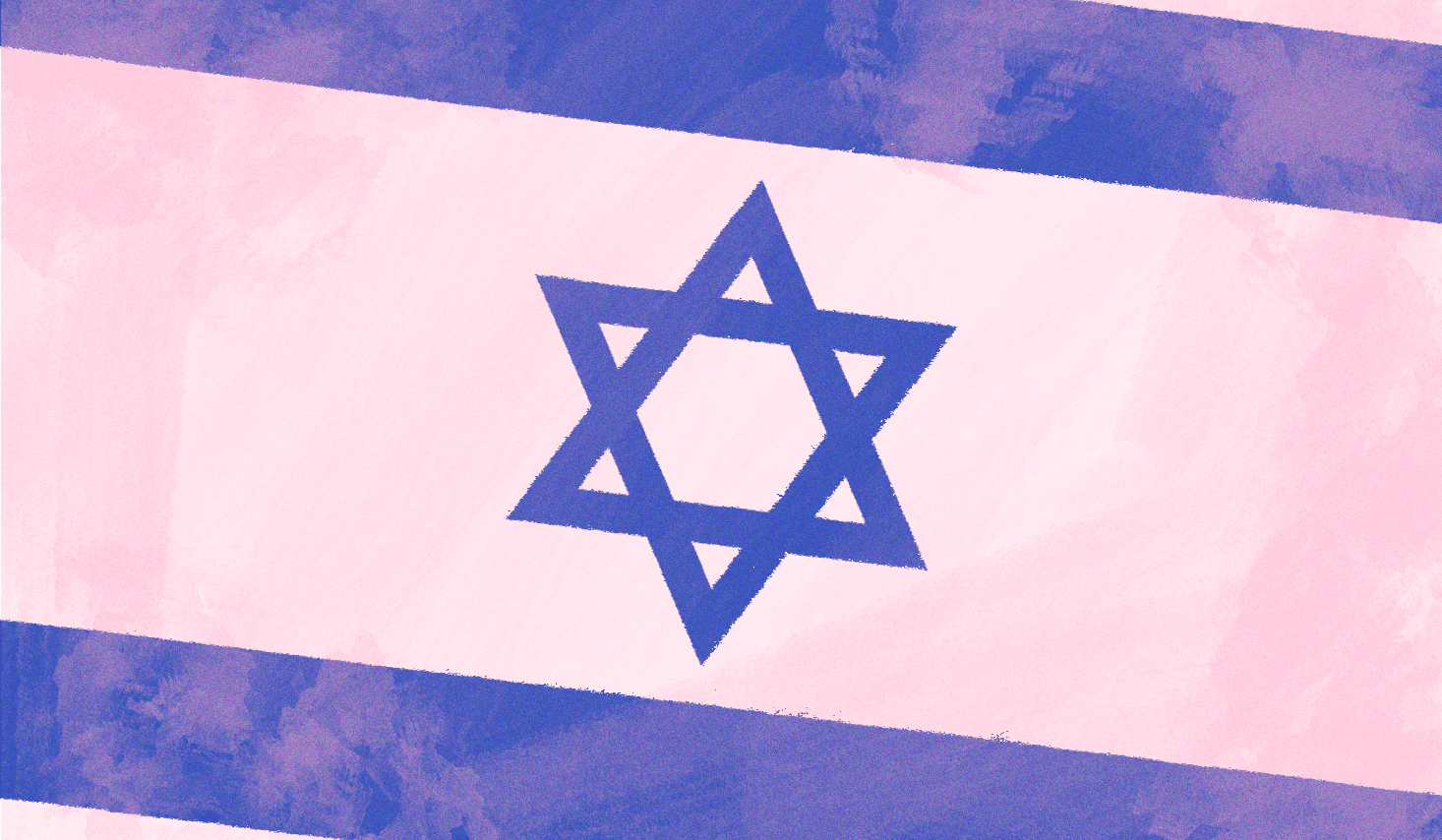
I used to be a big fan of Sam Smith. Their debut album In The Lonely Hour became a soundtrack of sorts as I went through an awkward dating era in my late 20s as a single guy in Sydney, and helped me get through deadlines while I was the editor of Star Observer.
Their newer music also played a role in keeping me focused as I spent weekends and weeknights editing and putting together my book This Arab Is Queer. And in recent months, I gained a newfound respect for them as they embraced their sexuality in the face of angry conservatives and fatphobes.
So when I recently found out Sam Smith was due to perform in Israel this summer, I was disappointed. I mean, I am an out and proud gay Palestinian after all. But ultimately I’m not surprised. When you constantly witness rampant western exceptionalism in the queer community – which seemingly hinders people from the ability to think critically – it’s hard to be surprised.
Sam Smith, along with fellow queer British singer Calum Scott, are both due to perform as part of Tel Aviv’s Summer in the City music festival on May 31-June 1. Since it was announced they were part of the line-up last December, a growing number of activists and social media users have zeroed in on Sam Smith – possibly because of their meteoric fame on both sides of the Atlantic – urging them to cancel their show. The reason? Smith’s performance would simply make them complicit in Israel’s pinkwashing scheme and normalising its settler-colonial project.
Pinkwashing refers to the way in which Israeli authorities use a pro-LGBTQ+ agenda, or the weaponisation of LGBTQ+ identity, to distract from its oppression of Palestinians and breaches of international law. Renowned activist and AIDS historian Sarah Schulman popularised the term in 2011. Writing in The New York Times, she described it as “a deliberate strategy to conceal the continuing violations of Palestinians’ human rights behind an image of modernity signified by Israeli gay life”.
The pinkwashing carried out by Israeli authorities is based on an Orientalist view that Palestinians remain “backwards” in their stance on homosexuality because apparently, we refuse to emulate the progressiveness of the west. Not only does this completely disregard the history and legacies of colonialism and modern-day imperialism in the region, but it’s also an example of euro-centric, western exceptionalism and a pillar of anti-Arab racism. But that’s a discussion for another time.
Liberation for queer Palestinians is tied up with liberation from Zionism
Pinkwashing and homonationalism also go hand in hand. First coined by Jasbir Puar in 2007, the concept of homonationalism argues that western LGBTQ+ movements are often bound up with upholding the racist sovereignty of the nation-state. This is exactly the case with Israel. And Sam Smith and Calum Scott’s planned performances make them complicit.
Inspired by the artists, activists, and academics who shunned apartheid, in South Africa, during the 1980s, the Palestinian-led global Boycott, Divestment, Sanctions (BDS) movement, within Palestine and worldwide, has been calling for a non-violent cultural boycott against Israel until it meets its obligations under international law. And yes, queer Palestinians have also been at the forefront of this movement, particularly through alQaws, an LGBTQ+ civil society organisation founded in grassroots activism that is based in Palestine.
If that’s not enough, in the last two years some of the world’s biggest human rights organisations, Human Rights Watch and Amnesty International, along with prominent Israeli NGO B’Tselem, have published detailed reports describing Israel’s apartheid policies against Palestinians not just in the besieged Gaza Strip or the occupied West Bank and East Jerusalem, but also against the 1.8 million Palestinian citizens of Israel.
Even the late Jewish South African anti-apartheid campaigner Denis Goldberg, who was tried with Nelson Mandela in the Rivonia Treason Trial, said Israel was the Middle East’s equivalent of apartheid South Africa. In 1985 Goldberg was forced into exile to Israel – but he quickly left in protest because he could not tolerate its oppressive policies, opting for London instead and continuing to work with exiled ANC members there.
And, so, this brings me to my next point: with everything we have learned about South Africa and the cultural boycotts that played a role in ending its apartheid, what suddenly makes it okay to perform in Israel today? And to do so even after three major human rights groups have gone on record to condemn its apartheid practices and policies? Surely, both Sam Smith and Calum Scott would be smart enough to understand that their upcoming show makes them complicit?
Tahrir Institute for Middle East Policy non-resident fellow Hussein Cheaito recently said that Sam Smith’s decision to perform in Tel Aviv was “the result of a lazy conversation on queer liberation— one that rests on white-washed understandings of queer futures”.
“If your activism does not intersect with all quests for ‘freedom’, including Palestinians’, you are turbocharging queer oppression and ostracization,” Cheaito said on Twitter. I couldn’t agree more.
As the gay son of a Palestinian refugee who fled Jaffa – now a part of Tel Aviv – as violence engulfed the city during Orthodox Easter in 1948, I simply cannot ignore the politics behind Smith’s planned performance.
My old man was part of the original wave of Palestinian refugees who fled during The Nakba – Arabic for “catastrophe” – the ethnic cleansing of Palestine around the creation of the state of Israel in 1948. Zionist forces captured around 78% of the country, depopulating and destroying 400-500 villages and towns. More than 700,000 Palestinians fled or were forcibly expelled from their homes.
My late father was only nine and a half when my grandmother made the difficult decision to flee. The experience of his beachside childhood suddenly being cut through with violence and dispossession was seared into his memory right up until my dad died in 2009. He was never able to shake off the trauma. His stories left a sorrowful, bittersweet yet important legacy – one that fuels my desire for justice. This is why I won’t sit and be quiet.
I cannot begin to tell you the number of times I’ve been challenged or trolled on social media for showing any ounce of agency as a gay Palestinian, or as a gay Arab. These critics and trolls far outnumber the bigoted homophobes I have to deal with in my own Palestinian and wider Arab communities. They want us to feel ashamed to be queer and Palestinian, rather than be one or the other. They want us to capitulate and accept Zionism and everything that comes with it: apartheid, military occupation, settler-colonialism, second-class citizen rights – because, apparently, we’d be “better off” that way.
But here’s the thing: our Palestinian identity is linked with our sexuality. We cannot and should never be asked to choose between the two. Liberation for queer Palestinians is tied up with liberation from Zionism. Israel may continue to present itself as a haven for LGBTQ+ expression in the region, but queer Palestinians do not enjoy the same rights as their Israeli counterparts.
The Nakba never stopped in 1948 – it continues today. Displaced Palestinians around the world do not have the right of return. Home demolitions and illegal settlement expansion in the West Bank continue unabated. The rise – and normalisation – of far-right, racist ministers in Israeli parliament has provoked a fresh wave of settler violence across the West Bank since the start of the year. And the humanitarian crisis from the siege of Gaza is ongoing. LGBTQ+ Palestinians are just as much targets or victims to all of this as the wider Palestinian society. They are not exempt and never have been.
Here’s the thing: our Palestinian identity is linked with our sexuality. We cannot and should never be asked to choose between the two
There have even been allegations of Israeli forces blackmailing queer Palestinians to work as informants or risk being outed to their community against their will. And it’s not easy for queer Palestinians to simply escape the West Bank or Gaza to seek asylum in Israel. When has any immigration authority made it easy for someone from an Arab country to migrate, let alone seek asylum? Even so, Israel enforces restrictions on freedom of movement for all Palestinian civilians, and the segregation wall and military checkpoints along the West Bank – which hark back to Cold War-era Berlin – is shining evidence of this.
On the other hand, the Palestinian citizens within Israeli borders are not Palestinians in the eyes of the government: they’re “Israeli-Arabs”. According to the legal rights group Adalah, there are more than 50 pieces of Israeli legislation discriminating against them. In 2018, the Israeli Knesset passed the “Jewish nation-state law”, effectively giving racial discrimination against Palestinians a legal foundation – and mirroring apartheid South Africa. Being queer does not make Palestinians exempt from this “law”.
Critics will say that we shouldn’t mix politics with music, that music should bridge divides rather than create division, and that this is why Sam Smith must go ahead with their performance. But that completely disregards the human rights abuses carried out by Israeli authorities. There are also critics who would say Smith’s performance does not necessarily mean they agree with Israeli politics, in the same vein as performers touring the US during the Trump administration did not mean they agreed with him. Not only is that a false equivalence, but it’s also missing the point. Simply performing in Israel both undermines the long-time calls for a cultural boycott, and further normalises the racist apartheid regime and brutal military occupation.
And yes, I know other critics would point to “neighbouring” countries (or even mention Hamas in the Gaza Strip as if they’re somehow a definitive representation of all Palestinians), arguing that Sam Smith would not be safe to perform there. No one is denying the questions around their safety in those “neighbouring countries”, especially since they all have a well-documented – and bleedingly obvious – prevalence of institutional and violent homophobia. But highlighting them when talking about Israel is merely a deflection from the issue at hand – and also thinly veiled anti-Arab racism and/or Islamophobia.
A few big-name artists are already on the right side of history. Lorde and Lana Del Rey recently grabbed headlines after they cancelled scheduled performances in Israel following pressure from BDS campaigners. Meanwhile, Drag Race alumni Jaida Essence Hall and the UK’s own Tayce and A’Whora cancelled scheduled performances in Tel Aviv last year after being made aware of their complicity in Israel’s pinkwashing. Several other notable queens, like Kandy Muse, Monet X Change and Sasha Velour – herself Jewish – have also used their platforms to express solidarity with Palestinians. Sam Smith themselves has previously gone on record to say they would “never” perform in Russia because of its treatment of the LGBTQ+ community. Activists and fans are now simply asking them to apply a similar sentiment with Israel and to stand on the right side of history.
Elias Jahshan’s book This Arab is Queer: An Anthology by LGBTQ+ Arab Writers is out now.
